Adapt or Die: The Imperative of Customization in Today's Business Landscape
In the fast-paced and ever-changing business environment of today, adaptability and agility are not just competitive advantages—they are essential for survival and growth. Companies must continuously evolve to meet shifting market demands, customer expectations, and technological advancements. Customization of business systems, particularly Customer Relationship Management (CRM) solutions, plays a pivotal role in this adaptive process. In contrast, rigid SaaS licensing patterns can impede a company’s ability to pivot and thrive.
![[object Object]](https://clipl-web1.sgp1.cdn.digitaloceanspaces.com/images/clu85g32c004p4irz90k4e9u5.png)
- Rapid Market Changes: Today's markets are characterized by rapid changes driven by technological innovation, economic shifts, and evolving consumer preferences. Businesses that can quickly adapt to these changes are better positioned to capitalize on new opportunities and mitigate risks.
- Personalized Customer Experiences: Customers today expect personalized experiences tailored to their specific needs and preferences. Businesses must be agile enough to gather and analyze customer data, derive insights, and adjust their strategies accordingly. This level of responsiveness requires a high degree of customization in business systems.
- Competitive Pressure: With globalization and digital transformation, competition is fiercer than ever. Businesses that can quickly adapt their strategies and operations to stay ahead of competitors will likely succeed. This requires flexible systems that can be rapidly reconfigured to support new business models and processes.
- The Limitations of SaaS Solutions: While SaaS CRM solutions offer convenience and quick deployment, they often come with significant limitations that can hinder a company’s ability to adapt and grow.
- Standardization vs. Customization: SaaS solutions are designed to be standardized, catering to the broadest possible audience. This standardization means they may lack the flexibility to meet specific business needs. Customization options are often limited, forcing businesses to adapt their processes to fit the software rather than the other way around.
![[object Object]](https://clipl-web1.sgp1.cdn.digitaloceanspaces.com/images/clu85gvvd004t4irzgz1cbrbk.png)
- Dependency on Vendor Updates: With SaaS CRMs, businesses are dependent on the vendor’s update schedule for new features and improvements. This lack of control can delay the implementation of critical functionalities needed to respond to market changes, putting the company at a competitive disadvantage.
- Scalability Challenges: As businesses grow, their needs become more complex. SaaS solutions can struggle to scale effectively, especially when advanced customization or integration with other systems is required. The cost of scaling with SaaS can also become prohibitive due to per-user pricing models and additional fees for premium features.
- The Imperative of Customization: Custom CRM solutions, by contrast, offer the flexibility and control needed to adapt and thrive in today’s business landscape.
- Tailored to Specific Needs: Custom CRMs are built to align perfectly with a company’s unique processes, workflows, and objectives. This level of customization ensures that the system supports the business’s specific needs, enhancing operational efficiency and effectiveness.
- Agility in Implementation: With a custom CRM, businesses have full control over the development and implementation of new features and functionalities. This agility allows companies to quickly respond to market changes, customer feedback, and new opportunities, maintaining a competitive edge.
![[object Object]](https://clipl-web1.sgp1.cdn.digitaloceanspaces.com/images/clzmeq0ec00t632qg89dthstg.png)
Seamless Integration: Custom CRMs can be designed to integrate seamlessly with existing systems, creating a unified platform that enhances data flow and operational efficiency. This integration capability supports scalability and adaptability, allowing businesses to evolve without being constrained by their CRM system.
Long-Term Cost Efficiency: While the initial investment for a custom CRM may be higher, the long-term cost efficiency can be significantly better than SaaS solutions. Businesses avoid the ongoing subscription fees and escalating costs associated with SaaS models, achieving a more predictable and often lower total cost of ownership.
Conclusion
In today’s rapidly evolving business landscape, the ability to adapt and stay agile is crucial for survival and growth. Custom CRM solutions provide the flexibility and control needed to meet specific business needs, respond to market changes, and scale effectively. While SaaS CRMs offer convenience, their rigidity can impede a company’s ability to pivot and thrive. Investing in a custom CRM is an investment in a company’s future, enabling it to adapt, innovate, and maintain a competitive edge.























